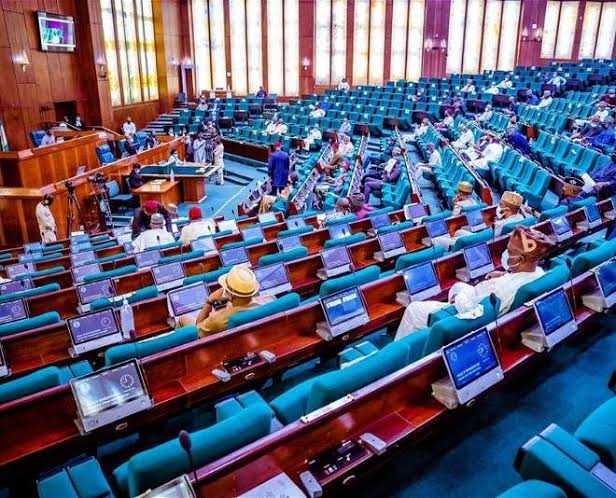The House of Representatives on Thursday summoned the Central Bank of Nigeria Governor, Yemi Cardoso, Minister of Finance and Coordinating Minister of the Economy, Wale Edun; Minister of Budget and Economic Planning, Atiku Bagudu; the Accountant-General of the Federation, Babatunde Ogunjimi and the Auditor General for the Federation, Shaakaa Chira, over non-payment of contractors since 2024.
The resolution of the House followed the adoption of a motion moved during Thursday’s plenary by Delta lawmaker, Ezechi Nnamdi.
Moving the motion, the lawmaker expressed concern that contractors across all Federal Government Ministries, Departments, and Agencies had yet to receive payment for certified work completed since October 2024, despite budgetary provisions for capital projects in the 2024 Appropriation Act.
Nnamdi explained, “Budget releases under the 2024 financial year to MDAs remain below 50 per cent, resulting in widespread project abandonment, financial distress among contractors, and an overall negative impact on the economy.”
He stated, “The non-payment has severely hindered the implementation of critical constituency projects, undermined public confidence in government delivery, and weakened investor trust in the nation’s infrastructure sector.”
Nnamdi expressed worry that “the delay in payment to contractors has resulted in job losses, stalling of infrastructure development, and disruptions to community-based projects across the federation.”
He pointed out that “the situation, if left unchecked, could lead to mass protests, legal disputes, and complete paralysis of public projects.”
The House resolved to invite the concerned officials to appear before it on Tuesday, May 13, 2025 to explain the reasons for the non-payment of contractors and provide a clear timeline for settling all outstanding verified payments.
Following the adoption of the motion, the House summoned “the Minister of Finance and Coordinating Minister of the Economy; the Honourable Minister of Budget and Economic Planning; the Accountant-General of the Federation; Governor of the Central Bank of Nigeria; Auditor-General of the Federation, and any other relevant officials.”
The House also mandated its Committee on Public Accounts and Committee on Budget and Economic Planning to conduct a joint inquiry into the systemic failure to disburse funds for contractor payments.
It further mandated the committees to investigate accountability lapses at MDAs responsible for processing payments and report back to the House within four weeks with findings and recommendations for remedial legislative action.
Senate passes remaining tax reform bills, approves 10%, 55%, 35% VAT distribution rate for FG, States, LGAs
Meanwhile, Nigeria’s upper legislative chambers, the Senate on Thursday passed the remaining two tax reform bills, known as, the Joint Revenue Board establishment bill 2025 and the Nigeria Tax bill 2025.
Senate President, Godswill Akpabio, who had constituted a conference committee to ensure harmonisation of the bills, stated that this feat marks the first time Nigeria would have a set of modernised tax acts.
In Wednesday’s plenary, lawmakers deliberated on the reports of the four executive-sponsored tax bills, successfully passing two and deferring the remaining two to Thursday.
However, all the bills have now been passed.
The passage came after a clause-by-clause consideration during the Committee of the Whole and subsequent third reading on the floor of the Senate.
The bills include the Joint Revenue Board Establishment Bill, the Nigeria Revenue Service Establishment Bill, the Nigeria Tax Administration Bill, and the Nigeria Tax Bill.
“These four executive bills seek to transform and modernise the tax system in Nigeria,” the Senate stated during the session.
Earlier, Akpabio said the Senate will set up a committee to harmonise its decision on the bills with the version passed by the House of Representatives in March. Once harmonised, the unified bills will be transmitted to President Bola Tinubu for assent.
On the distribution of VAT revenue, the Nigeria Tax Administration Bill proposed 15 per cent for the Federal Government, 50 per cent for the states and the Federal Capital Territory, and 35 per cent for the local governments.
However, the committee recommended a new distribution of 10 per cent to the Federal Government, 55 per cent to the states and the FCT, and 35 per cent to the local governments.
For the distribution of the VAT revenue meant for states, the committee recommended that 50 per cent should be shared equally among all the states, 20 percent should be shared based on the population of each state and 30 per cent based on the place of consumption of the goods and services from where the VAT was raised.

